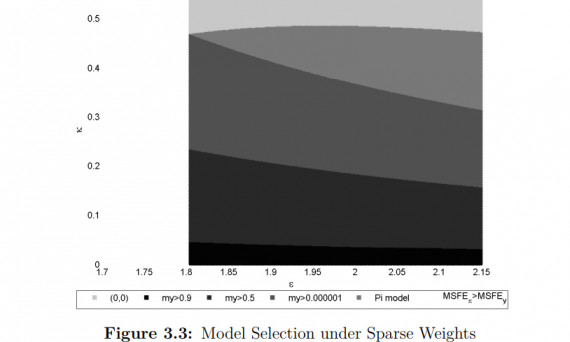In this work we consider a concept of sparse rationality (developed recently by Gabaix, 2014) as a selection tool in a model with multiple equilibria. Under sparse rationality paying attention to all possible variables is costly, and the agents could choose to over- or under-emphasize particular variables, even fully excluding some of them. Our main question is whether an initially mis-specified equilibrium (the Restricted Perceptions Equilibrium, or RPE) is compatible with the equilibrium choice of sparse weights, describing allocation of attention to different variables by the agents inhabiting this RPE. In a simple New Keynesian model, we find that the agents stick to their initial mis-specified AR(1) forecasting model choice if the feedback from expectation in the model is strong or inflation becomes more persistent. We also identify a region in the parameter space where the agents find it advantageous to pay attention to no variable at all. Stronger monetary policy response decreases the region in the parameter space, where the mis-specified rule survives.
Сергей Слободян, Санкт-Петербургская школа экономики и менеджмента НИУ ВШЭ
Volha Audzei, Czech National Bank
